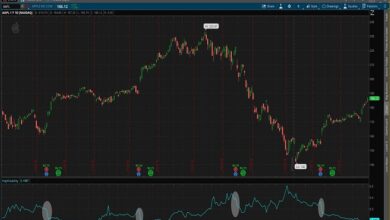Common Myths and Realities About OTC Trading Markets

Over-the-counter (OTC) trading is a part of the financial markets that often flies under the radar, overshadowed by the more well-known stock exchanges like the NYSE or NASDAQ. Because of its lower profile, OTC trading is often misunderstood, leading to several myths that can misguide potential investors. Let’s dive into some of these myths and separate fact from fiction. Uncover the common myths about OTC trading by connecting with experts on proficator.org, who offer clarity and insight.
Myth 1: OTC Markets Are Just for Penny Stocks
One of the most pervasive myths is that OTC markets are exclusively for penny stocks or companies that are too small or risky to be listed on major exchanges. While it’s true that OTC markets do include several smaller companies and penny stocks, they’re not limited to these.
The OTC market is diverse and includes companies of various sizes and stages of development. You’ll find international companies, large corporations that prefer not to be bound by the stringent reporting requirements of major exchanges, and even debt securities and derivatives.
For instance, many foreign companies choose to trade on OTC markets because it allows them to access U.S. investors without the hassle of a full listing on a U.S. exchange. So, while penny stocks are a part of OTC markets, they’re just one piece of a much larger puzzle.
Myth 2: OTC Trading Is Highly Risky and Unregulated
Another common misconception is that OTC trading is like the Wild West of finance—risky, unregulated, and full of pitfalls. While it’s true that OTC markets don’t have the same level of regulation as major exchanges, that doesn’t mean they are entirely unregulated or inherently risky.
The OTC market is regulated by the Financial Industry Regulatory Authority (FINRA) in the U.S., which ensures that transactions are conducted fairly and transparently. However, the level of disclosure required from companies trading OTC can be less stringent than on major exchanges, which means investors do need to do more of their homework. However, with thorough research and due diligence, investors can find plenty of legitimate and potentially profitable opportunities in OTC markets.
Myth 3: Liquidity Is Always a Problem in OTC Markets
Liquidity, or the ease with which an asset can be bought or sold without affecting its price, is often cited as a major issue in OTC markets. The myth suggests that OTC markets are always illiquid, meaning it’s difficult to sell a stock once you’ve bought it, potentially leaving you stuck with an unwanted asset.
While it’s true that some OTC stocks can be less liquid than those on major exchanges, this isn’t universally the case. Liquidity varies widely across the OTC market. Some securities, especially those of larger or more established companies, can be quite liquid. The key is to understand the specific security you’re dealing with. By focusing on more established OTC securities or those with a higher trading volume, investors can avoid liquidity issues.
Myth 4: OTC Markets Are Only for Speculators
Many believe that OTC markets are the playground of speculators—those looking to make a quick buck on risky bets. This myth overlooks the fact that OTC markets can also be suitable for long-term investors, particularly those interested in niche markets or specific sectors that aren’t well-represented on major exchanges.
OTC markets offer access to a wide range of investment opportunities, from small-cap growth stocks to international companies and even bonds. For investors willing to put in the time to research and understand these opportunities, OTC markets can provide a valuable addition to a diversified portfolio. While speculation does occur, and there are risks involved, OTC trading can be part of a balanced investment strategy, not just a high-stakes gamble.
Why It’s Important to Dispel These Myths?
Believing these myths can lead to missed opportunities or misguided decisions. For example, if you think that OTC markets are only for penny stocks, you might overlook a solid, foreign company that could provide significant returns. Or if you assume that all OTC stocks are illiquid, you could miss out on a good investment because you’re worried about being unable to sell it later.
The truth is, like any investment, OTC trading has its risks, but it also has its rewards. The key is to approach it with a clear understanding, a solid strategy, and the willingness to do the necessary research.
Conclusion
In the end, OTC markets are more than just a niche corner of the financial world—they’re a complex and diverse marketplace with opportunities for those willing to look beyond the myths. While they do carry risks, as all investments do, they also offer unique opportunities that can’t be found on major exchanges. If you’re considering OTC trading, don’t let these common myths deter you. Instead, take the time to educate yourself, do your research, and consult with financial experts.




